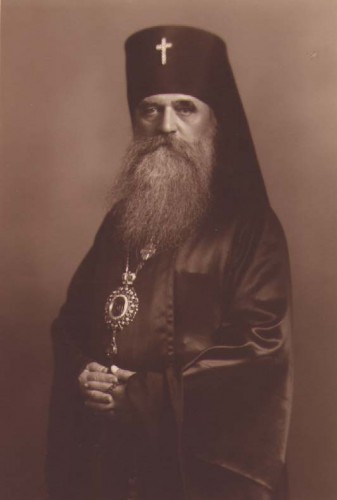
To read along, go here.
The possibility for man to come to God lies precisely in the fact that he is a sinner… As he was pursued by desire and fear, so he was pursued by God.
-Rudolf Bultmann, “The Problem of ‘Natural Theology'”
 Leo Tolstoy’s short story “Father Sergius” is a parable of conversion and sanctification unmatched in anything modern I’ve read, except perhaps Flaubert. To summarize: an up-and-coming, well-educated Russian military officer is gradually breaking into the highest society; he wins promotions quickly and finds the Tsar’s favor. He becomes engaged to a high-class woman whom he loves, but when he finds out she used to sleep with the Tsar, he breaks the engagement and flees to a monastery, pursuing a path of holiness. Several years in, a woman comes to seduce him on a bet. Overcome by lust, he keeps his monastic vows in a rather extreme way: by chopping off his finger to kill his amorous mood (Matthew 5:30). He then becomes revered as a holy man, seems to progress in holiness, and then, years after the first encounter, he’s approached by a youngish girl with deep psychological ailments for healing, and he promptly sleeps with her, flees to the Russian countryside, and finds real spirituality in his exile.
Leo Tolstoy’s short story “Father Sergius” is a parable of conversion and sanctification unmatched in anything modern I’ve read, except perhaps Flaubert. To summarize: an up-and-coming, well-educated Russian military officer is gradually breaking into the highest society; he wins promotions quickly and finds the Tsar’s favor. He becomes engaged to a high-class woman whom he loves, but when he finds out she used to sleep with the Tsar, he breaks the engagement and flees to a monastery, pursuing a path of holiness. Several years in, a woman comes to seduce him on a bet. Overcome by lust, he keeps his monastic vows in a rather extreme way: by chopping off his finger to kill his amorous mood (Matthew 5:30). He then becomes revered as a holy man, seems to progress in holiness, and then, years after the first encounter, he’s approached by a youngish girl with deep psychological ailments for healing, and he promptly sleeps with her, flees to the Russian countryside, and finds real spirituality in his exile.
There’s a few ways to describe the transitions he makes during his life. His ambition is his defining characteristic for most of the story, and he lives for achievement – first in the secular sphere, and subsequently in the religious. The desire for achievement presupposes a Fall; the sense of the self and one’s current life as lacking is what propels us to mend the tear, and no one who feels content as they are also feels the pull of ambition. So ambition grows out of a sense that all is not right, that Eden is lost and needs recovery. But what is the loss of Eden besides a deficiency of willpower, or a perversion of the will (as Augustine put it) or a deficiency of self-knowledge as a finite creature? So ambition arises out of a sense of fallenness, but ambition is also checked by fallenness, or limited by it. Prince Kasatsky, the future monk Sergius, lives in this impasse: out of an insecurity about his own limitation, he tries to transcend it. The more he achieves – and thus the closer he gets to his limits – the more he realizes his limits, and he develops more anxiety which, in his case, is ambition’s driving force. He’s caught in a paradox of attempted self-transcendence, and only a disruption will free him from it.
The disruption, of course, comes in the knowledge that his fiance used to be a mistress of the Tsar. One flaw that Tolstoy gives him, apart form ambition, is his idealization of female purity, and it’s this latter element that makes the story work so beautifully. The flaw of obsession with female (sexual) purity for him, the male, is a misplaced desire to ignore human limitation, to get back to Eden. Idolators of purity ignore the Fall, and they think that by joining themself with a wholly pure other that they can themselves return to a state of innocence. On the level of the story, or the action proper, Kasatsky flees the world because his pride has been crushed and his ambition thwarted, so he goes to monastic life because it’s the one avenue left where he can feel better than other people.
 But the enveloping action, or symbolic level here, is that the revelation of his wife-to-be’s relationship with the Tsar defeats his idol of human purity; he is forced to realize that Eden has been abandoned, closed to us by the fiery sword. (As a brief sidenote, Tolstoy’s critique of Kasatsky is proto-feminist in a way, trying to deconstruct Kasatsky’s obsession with purity as a fundamentally ego-driven one).
But the enveloping action, or symbolic level here, is that the revelation of his wife-to-be’s relationship with the Tsar defeats his idol of human purity; he is forced to realize that Eden has been abandoned, closed to us by the fiery sword. (As a brief sidenote, Tolstoy’s critique of Kasatsky is proto-feminist in a way, trying to deconstruct Kasatsky’s obsession with purity as a fundamentally ego-driven one).
So Kasatsky seeks purity himself in seclusion, makes the leap from Pharisee to Essene. In the paradox of ambition presupposing limitation in the secular sphere, limitation has at last been made manifest, and Eden deconstructed. So he develops spiritual ambitions, because “by becoming a monk, he showed that he scorned all that seemed so important to others and to himself at the time of his [government] service, and that he had reached a new height, from which he could look down on the people he had envied before.” Sounds familiar? It’s easy to suspect this yearning for superiority is almost always a slight component of conversion, and of intense spiritual discipline.
But Kasatsky, though he has a new name (“Father Sergius”), is still beset by the same flaws as before (this might also sound familiar – see Hosea 2:23, Isa 62:12-63:1). The justified one is still the sinner, to put it in terms more Lutheran than Tolstoy perhaps would’ve been comfortable with, but nonetheless applicable. He’s the same person, in the same paradox of now-spiritualized ambition with the same limits. Just as the everyday pressures of life point to the one Law, and are symbols of it, so too Kasatsky’s secular ambition points to his desire to stand spiritually justified. And his secular limits point to decidedly more spiritual ones, limits which he will attempt to transcend with equal fervor. And so Sergius’s struggle is no different than Kasatsky’s; you could say he’s just showing his true colors as spiritual ladder-climber. Or to looks at it a different way, he’s gone from the aesthetic sphere into the ethical, but he’s still far from the truly religious.
Anyway, Jesus once said that external things can’t defile someone, but instead what comes out of the human heart defiles. Christ’s preference for viewing ethics as an interior phenomenon (see too Jesus’s thoughts action vs intention on Matthew’s Mount) is supported by Tolstoy – he obeys a strict outward regimen, and it appears that this discipline has somehow made him more holy, when he chops off a finger to kill his desire for a woman sitting half-naked on the bed in his hermit cell. But outward discipline only engenders more outward discipline: that is, fasting frequently is almost guaranteed to help you resist temptation in the short run, but in the long run, well, the truth will out, as another great writer said. C.S. Lewis referred to sanctification as “Good Pretending”, saying we’re called to pretend like we’re Christ because in good pretending, “the pretence leads up to the real thing” like a mask worn for years that, when taken off, reveals that the “face had grown to fit it” (Mere Christianity). Now, I’m not taking sides, but (for all CSL’s other strengths), to Tolstoy this pretending looks very much like pressure-washing a tomb. Because, despite Sergius’s years of the best kind of pretending, years later he commits an act more reprehensible than most of the “secular” people he knew would’ve looked down on: he sleeps with a twenty-two year-old, “feebleminded” girl (euphemisms weren’t quite as tactful back then) who had been brought to him for healing.
Strangely, it’s remorse from this that actually, and for the first time, sets him on a path resembling anything like the “spiritual progress” he had desired. And then a voice tells him to seek advice and teaching, not from the monks, but from a peasant woman whom the narrator described as “stupid”, and who has not a hope of advancement in the world.
More than all that, she self-describes as someone who has “lived the most vile, nasty life”, and she rarely goes to church, and she admits to praying mechanically, without too much warmth. But he learns from her, because this is the new spirituality which will rightfully come to define him: the league of the guilty, the fellowship of the sick (Denzel’s Flight!), the support group for sinners. And he’s a vagabond, a beggar, who “emptied himself” (Ph 2) of even spiritual ambition, and then the most amazing thing happens: finally, Tolstoy writes that “gradually God began to be revealed in him” – in the form of a suffering servant.

COMMENTS
4 responses to “Holiness is Being a Vagabond: Reflections on Tolstoy’s “Father Sergius””
Leave a Reply














Thanks Will. Absolutely wonderful.
> More than all that, she self-describes as someone who has “lived the most vile, nasty life”, and she rarely goes to church, and she admits to praying mechanically, without too much warmth. But he learns from her, because this is the new spirituality which will rightfully come to define him: the league of the guilty, the fellowship of the sick (Denzel’s Flight!), the support group for sinners.
From your comments, it sounds as though you took her words as being a true reflection of her state. In that case, you’ve seriously misanlyzed what Tolstoy is trying to convey here. She was a humble, self-deprecating woman who blamed herself for things that, rightfully, she ought not to have. She spent her life in the background, faciliting the lives of her family members, and staunchly refused to take credit for anything.
*This* was the path to spiritual progress that Father Sergius was missing, and this is what he learned from her. Tolstoy states the very explicitly:
“I lived for men on the pretext of living for God, while she lives for God imagining that she lives for men”
It really has nothing to do with being in “the league of the guilty, the fellowship of the sick”, but rather, discovering what it truly means to live for God.